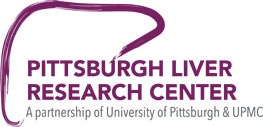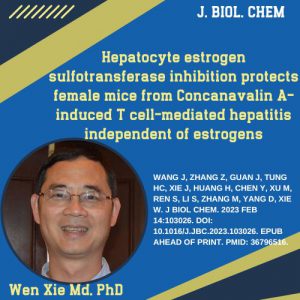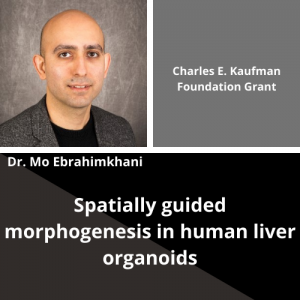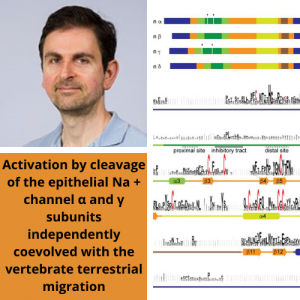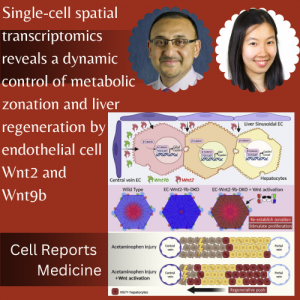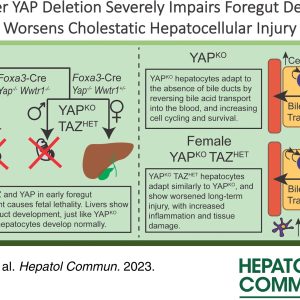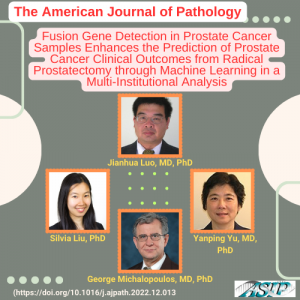

Pictured left to right: W. Xie, J. Locker
Lu P, Cai X, Guo Y, Xu M, Tian J, Locker J, Xie W. Constitutive Activation of the Human Aryl Hydrocarbon Receptor in Mice Promotes Hepatocarcinogenesis Independent of Its Coactivator Gadd45b. Toxicol Sci. 2018 Oct 22. doi: 10.1093/toxsci/kfy263. PMID: 30346592
ABSTRACT
2,3,7,8-tetrachlorodibenzo-p-dioxin (TCDD), or dioxin, is a potent liver cancer promoter through its sustained activation of the aryl hydrocarbon receptor (Ahr) in rodents. However, the carcinogenic effect of TCDD and AHR in humans has been controversial. It has been suggested that the inter-species difference in the carcinogenic activity of AhR is largely due to different ligand affinity in that TCDD has a 10-fold lower affinity for the human AHR compared to the mouse Ahr. It remains unclear whether the activation of human AHR is sufficient to promote hepatocellular carcinogenesis. The goal of this study is to clarify whether activation of human AHR can promote hepatocarcinogenesis. Here we reported the oncogenic activity of human AHR in promoting hepatocellular carcinogenesis. Constitutive activation of the human AHR in transgenic mice was as efficient as its mouse counterpart in promoting diethylnitrosamine (DEN)-initiated hepatocellular carcinogenesis. The growth arrest and DNA damage-inducible gene 45 β (Gadd45b), a signaling molecule inducible by external stress and UV irradiation, is highly induced upon AHR activation. Further analysis revealed that Gadd45b is a novel AHR target gene and a transcriptional coactivator of AHR. Interestingly, ablation of Gadd45b in mice did not abolish the tumor promoting effects of the human AHR. Collectively, our findings suggested that constitutive activation of human AHR was sufficient to promote hepatocarcinogenesis.
For full text, please click here.
